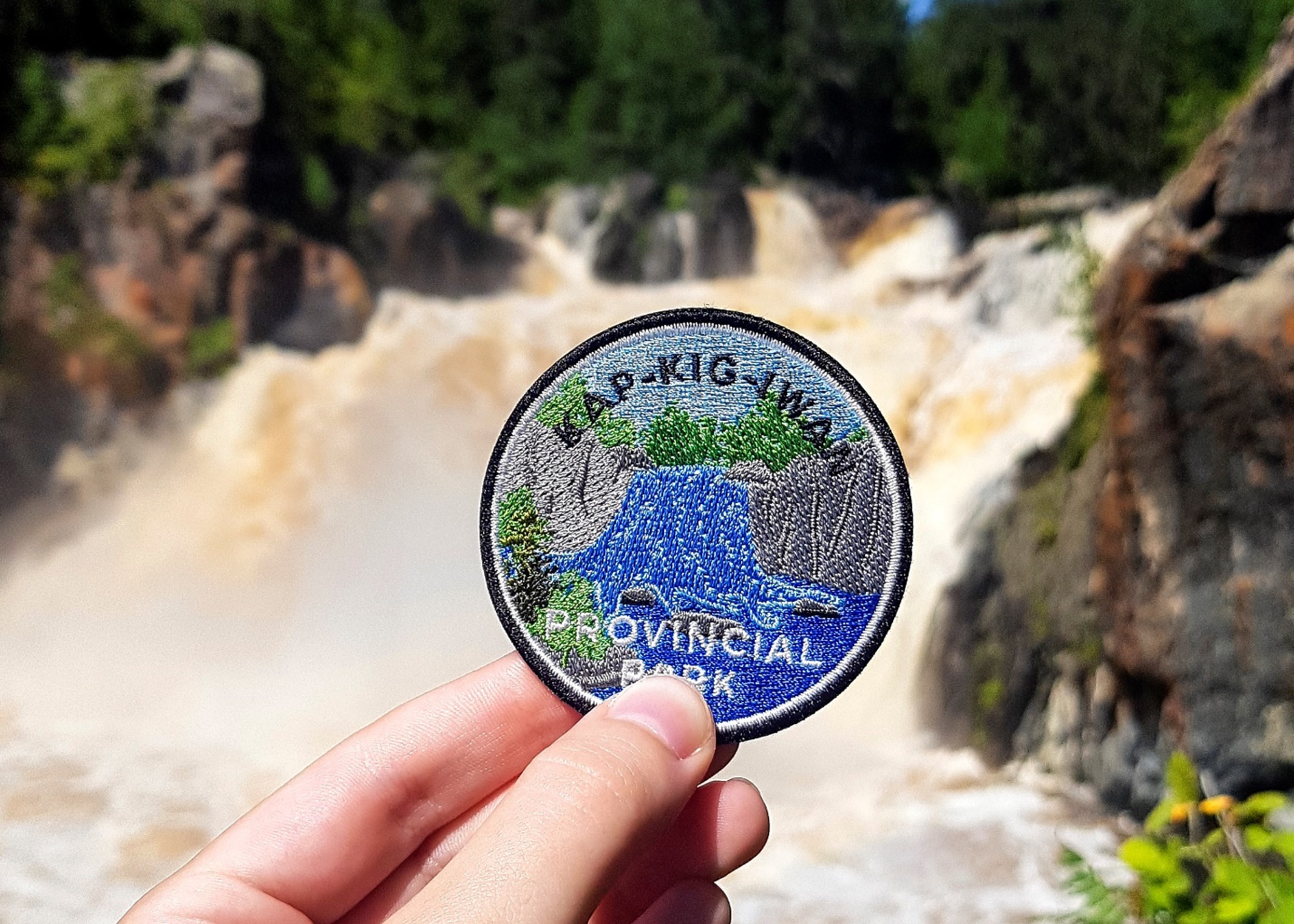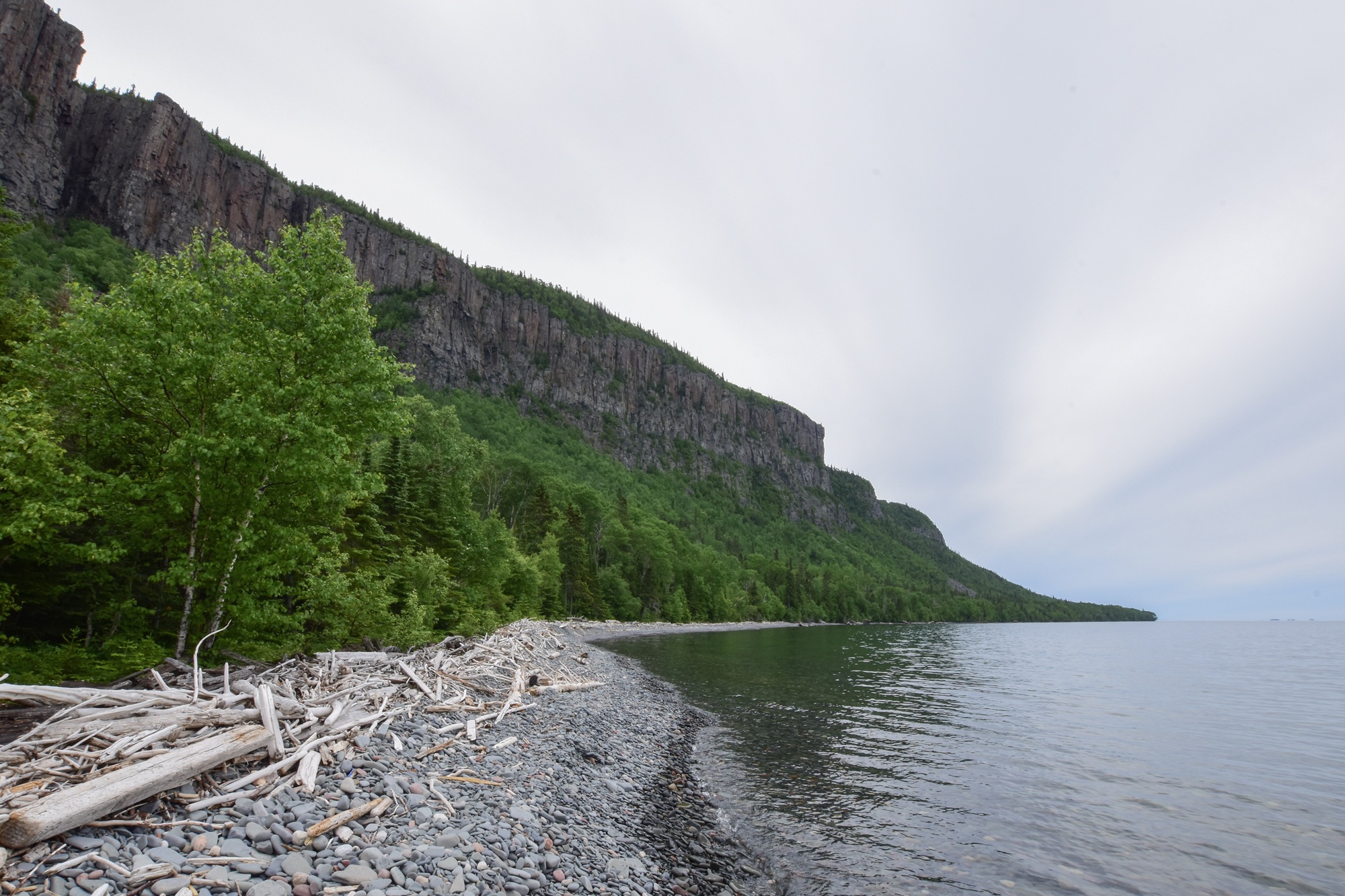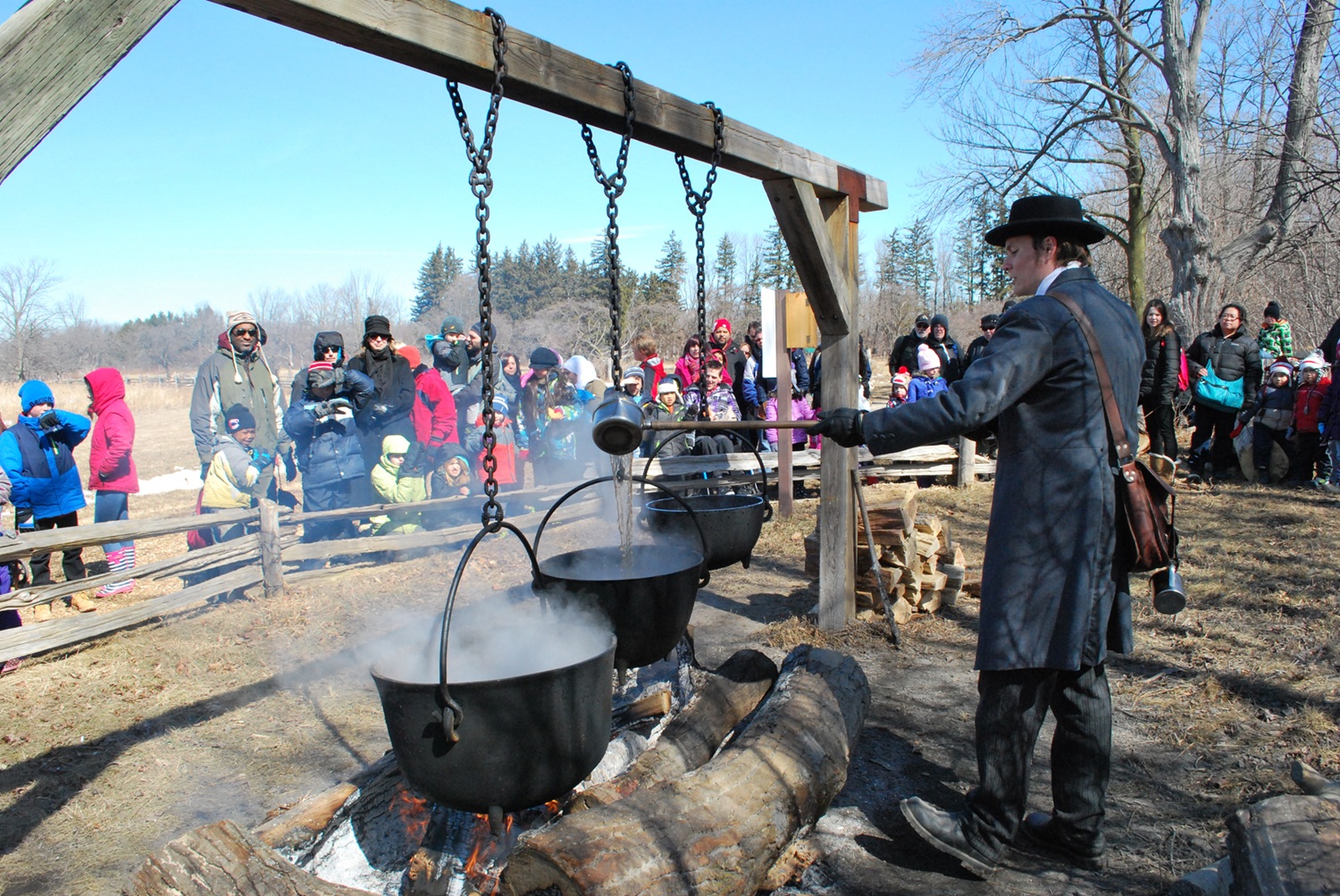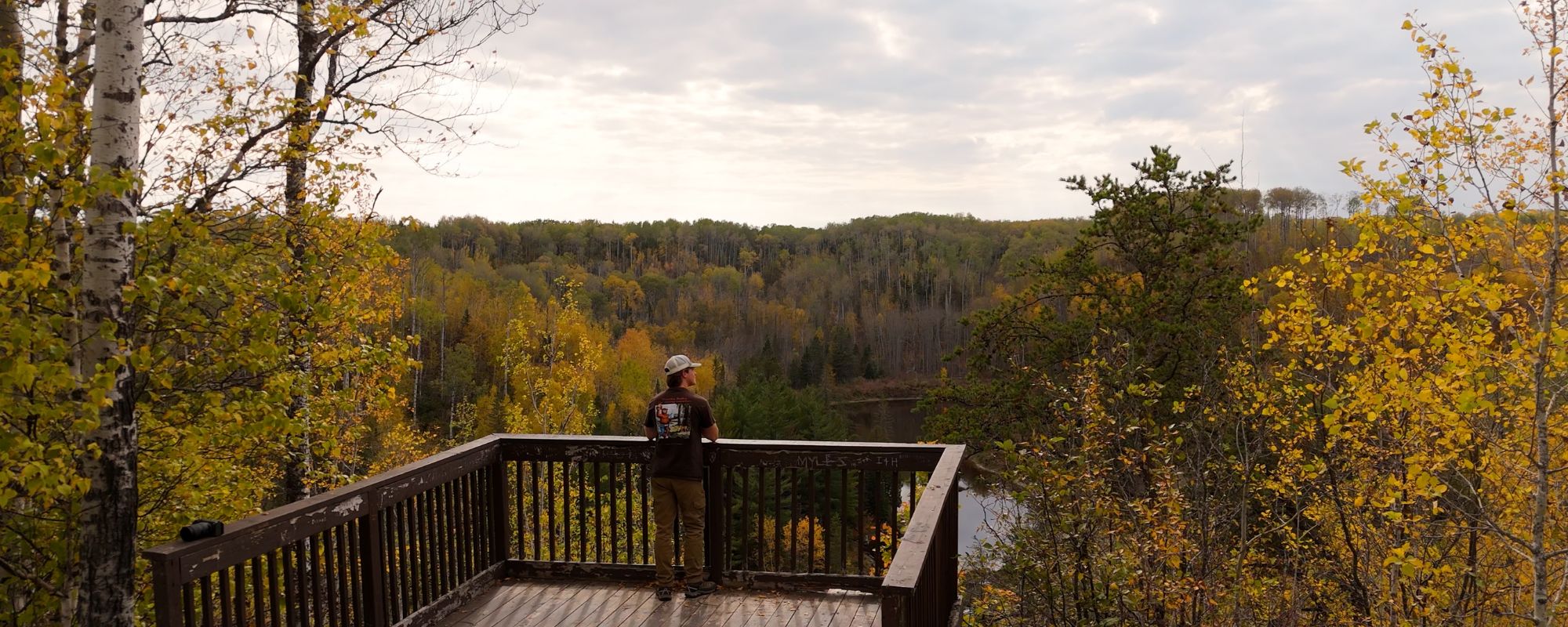
If the sights and sounds of moving water in nature are refreshing and rejuvenating, then time spent at Kap-Kig-Iwan is liquid medicine!
Situated in the heart of Northern Ontario, Kap-Kig-Iwan Provincial Park is located just off Highway 11, two kilometres south of Englehart, and just north of the Temagami region.
This picturesque little park showcases the best of the boreal forest, with awe-inspiring water features that can’t be missed!
Check out these five reasons to visit Kap-Kig-Iwan:
~
1. Fall for the water features
The name Kap-Kig-Iwan is said to come from the Ojibwe phrase “water running over the edge.”
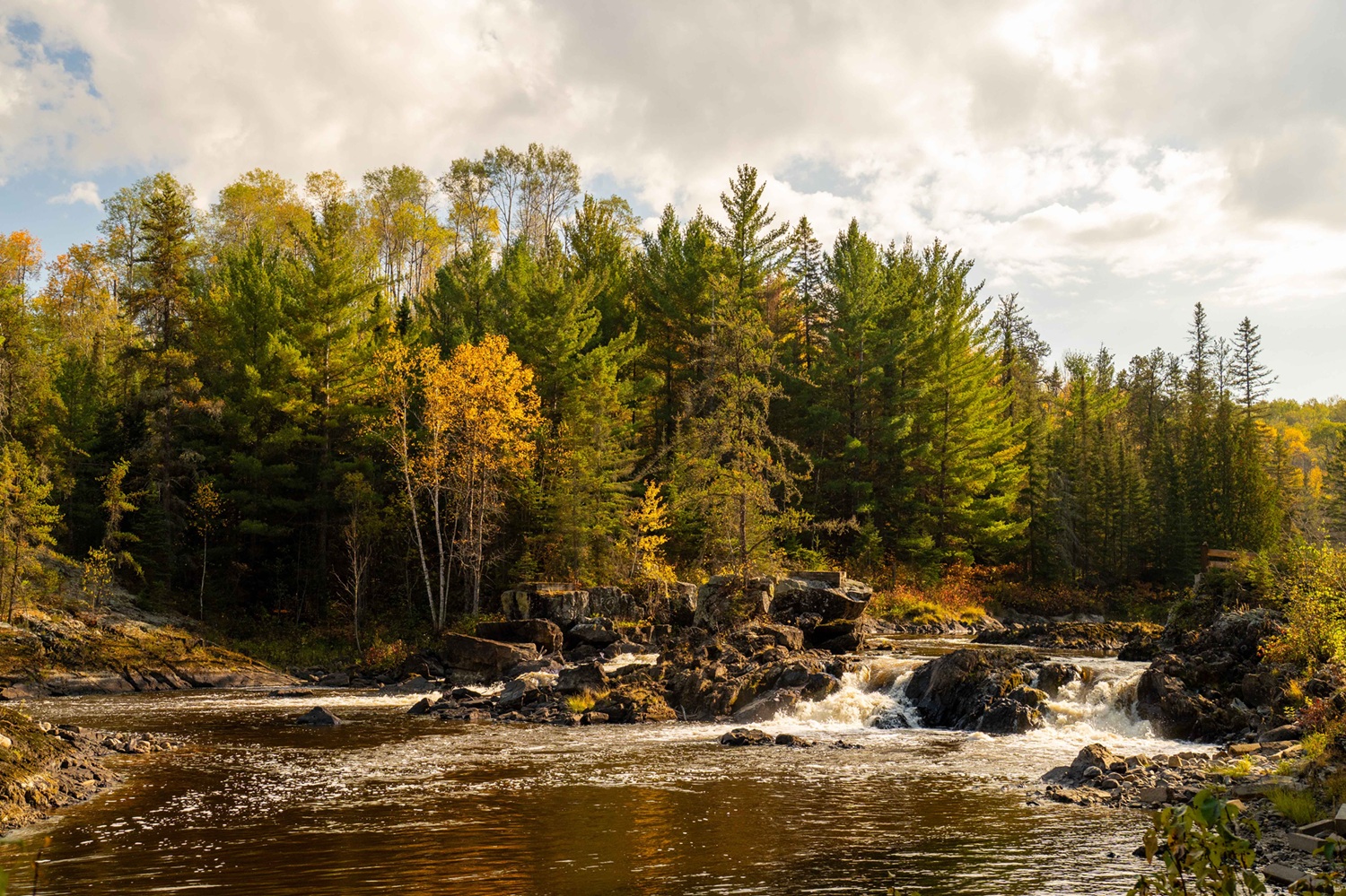
The many faces of the Englehart River — its white-water rapids, cascades, and waterfalls — are revealed as it winds through a picturesque valley.
Explore the twists and turns of the river on the park’s hiking trails or by relaxing near the main waterfall by the day use area.
~
2. Stay for the scenic valley
The Englehart River flows through a pretty little valley that cuts through the Little Clay Belt, an unexpected agricultural region of northeastern Ontario.
The Little Clay Belt was formed thousands of years ago by glacial meltwaters at the end of the ice age. For thousands of years the ice had ground up rock into sand, silt, and clay.
About 9,000 years ago the meltwaters deposited the silt and clay at the bottom of a wide glacial lake.
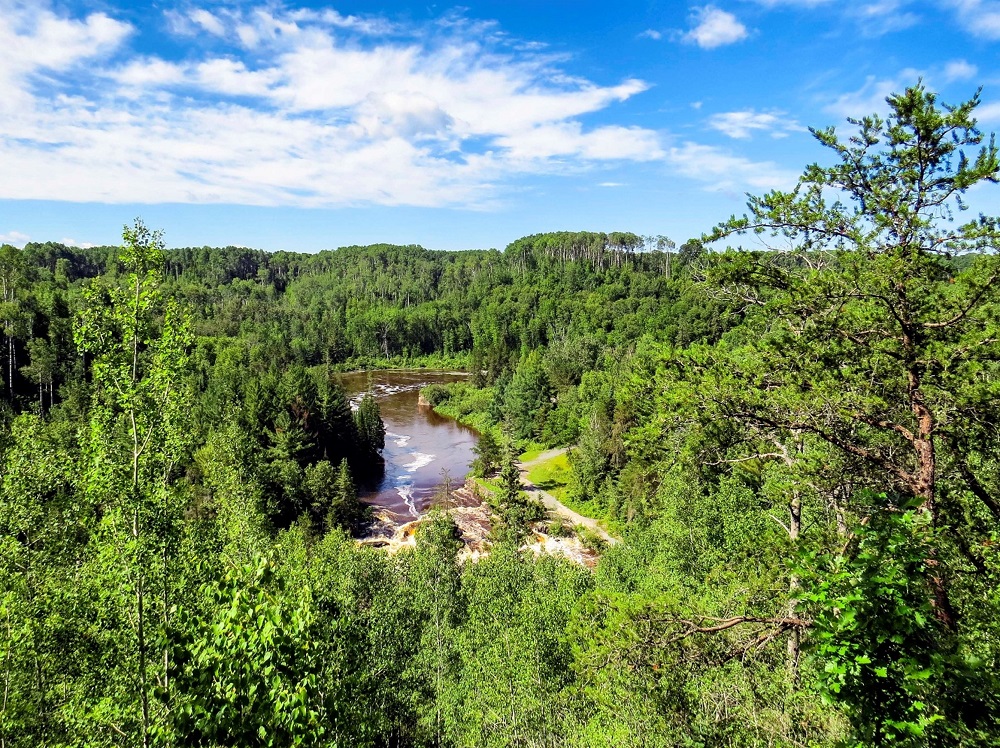
The Englehart River has cut down through the soils of the Clay Belt at Kap-Kig-Iwan. Here it reaches the hard Canadian Shield bedrock, where it tumbles over falls and cataracts surrounded by boreal forest, to create this scenic landscape.
In the early 1900s, farmers discovered this fertile landscape. Grain, hay, and dairy farms became abundant.
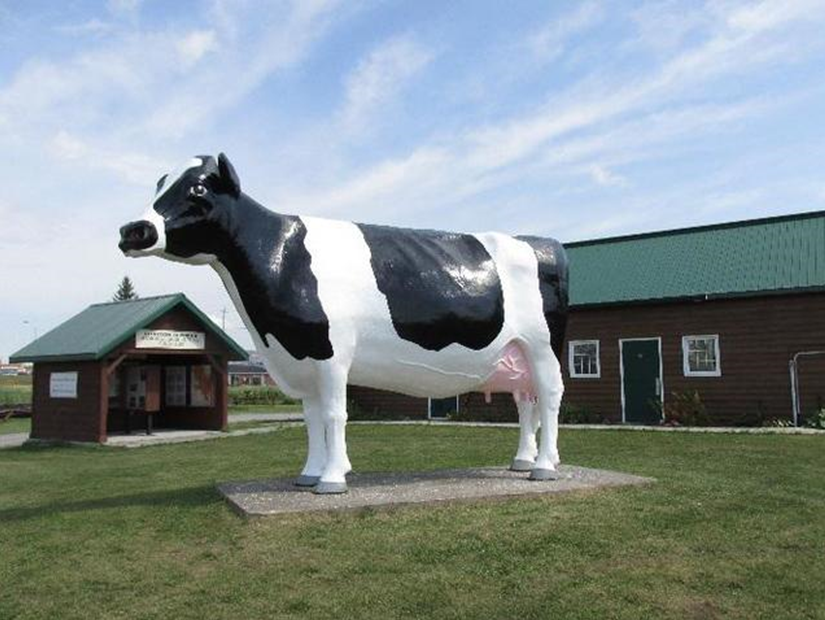
Check out a huge dairy cow statue known as Ms. Claybelt and the Little Claybelt Homesteaders Museum in New Liskeard.
Food tourism is growing in the communities and farming country of the Little Clay Belt, too!
~
3. Bird in the boreal forest
Thousands of birds migrate to the boreal forest each spring and summer to nest and raise their young.
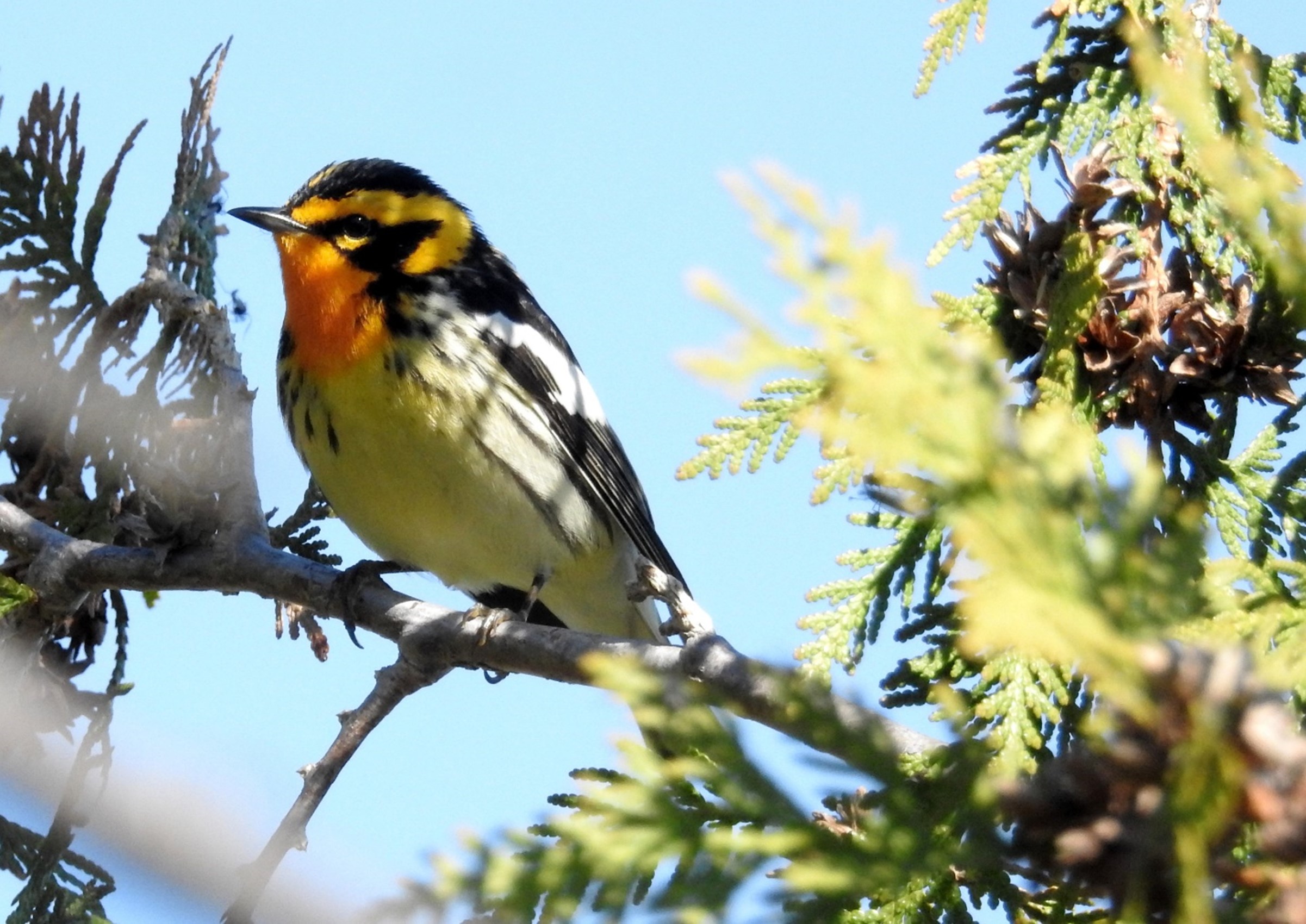
Many of these nesting songbirds will have briefly passed through Southern Ontario, and are taking advantage of the abundant food in the park to feed their chicks.
Pack your binoculars and life list and get ready to spot a variety of birds, including Chestnut-sided, Mourning, Yellow and Blackburnian Warblers, flycatchers, and vireos!
~
4. Traverse cool trails
Celebrate the park’s beautiful boreal forest and stunning water features by exploring all of their hiking trails.
Perfect for novice hikers, these trails showcase the park’s beauty and reward visitors with stunning lookouts, with little challenging terrain.
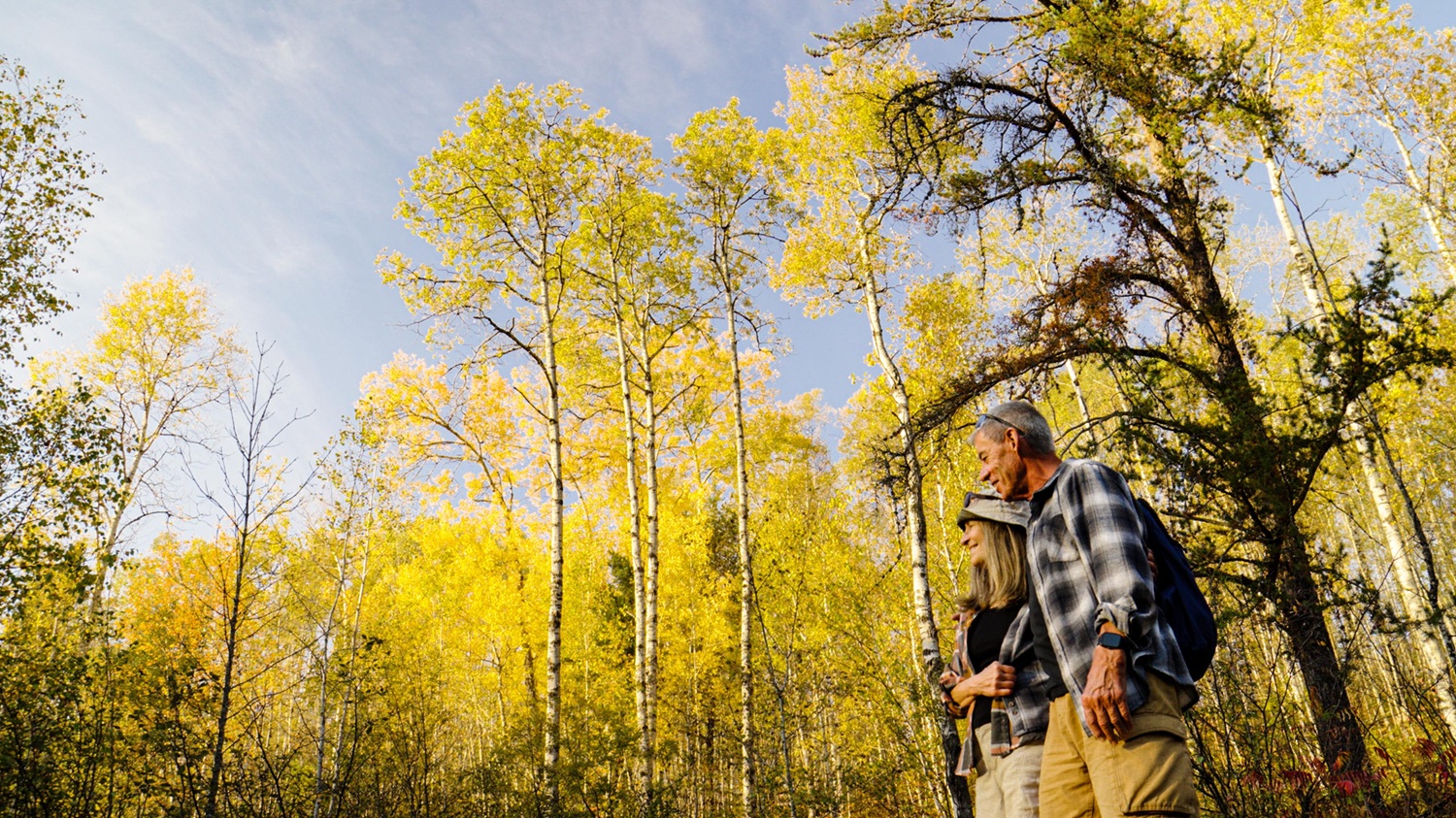
Hell’s Gate Trail is a moderate 2.5 km trail, which allows hikers to trace the Englehart River past waterfalls, rapids, and deep ravines.
Boreal birders love the Upland Circle Trail. This 5 km trail takes visitors through pine, beech, and poplar stands.
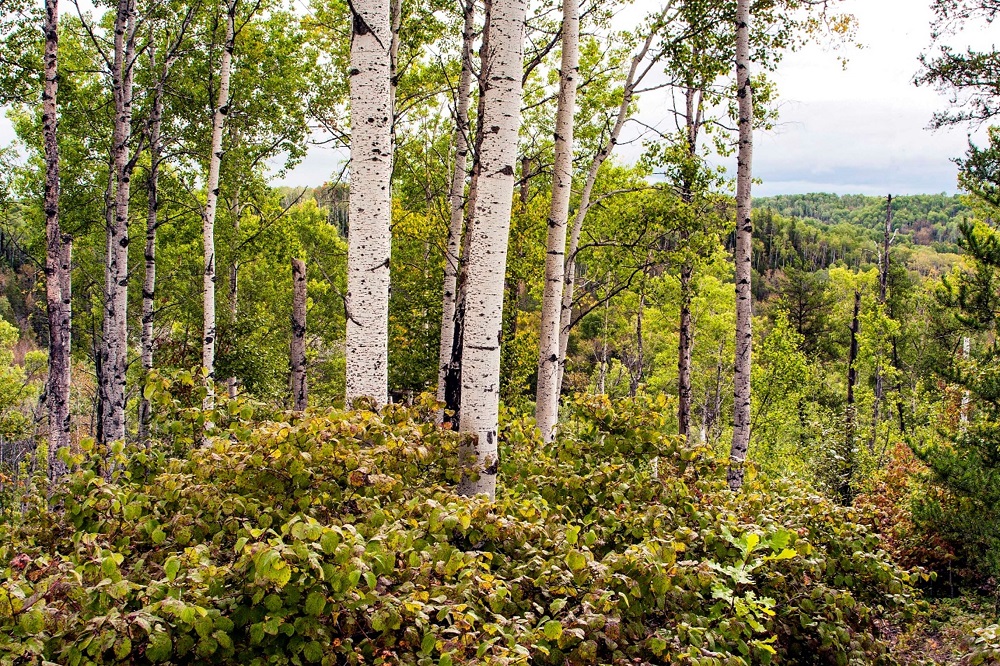
While not a trail, there is a great lookout with views over the Englehart River Valley just off the main park road.
~
5. The perfect road trip
While Kap-Kig-Iwan is worth the drive on its own, this gem only highlights a small part of the vast boreal forest in northern Ontario.
It’s the perfect start to our boreal driving route, tripping campers around eight parks in total (including Esker Lakes Provincial Park, Fushimi Lake Provincial Park, and White Lake Provincial Park).

Prefer to keep your tent staked in one spot? Use the park as basecamp to explore local attractions.
Take a trip to Temiskaming Shores for a bite to eat and unique events and attractions like the New Liskeard Business Improvement Association’s Summerfest!
BONUS: Kap-Kig-Iwan Is open for the fall season!
If you haven’t experienced the park in autumn, now’s the time — the trails are peaceful, the colours are stunning, and the air is refreshingly crisp.
- High Falls in autumn: our signature waterfall is even more breathtaking surrounded by fall foliage
- Peaceful trails: enjoy quieter paths and a slower pace as the summer crowds fade
- Picnic spots with a view: bring a blanket and lunch — the scenery is unbeatable this time of year
- Wildlife watching: fall is a great time to spot birds and other wildlife preparing for winter
Whether you’re hiking, relaxing, or just soaking in the season, Kap-Kig-Iwan is a beautiful place to be this fall. Come enjoy the magic before the snow flies!
~
Planning a visit?
Kap-Kig-Iwan’s campgrounds offer 32 electrical and 11 non-electrical campsites.
A comfort station with flush toilets and hot showers is located centrally in the park.
Visiting for the day? You can now reserve your daily vehicle permit in advance to guarantee entry.
Day users and campers alike can enjoy a scenic picnic lunch by the main waterfall in the Englehart Valley, located along the Englehart River with picnic tables, parking and access to trails.
~

